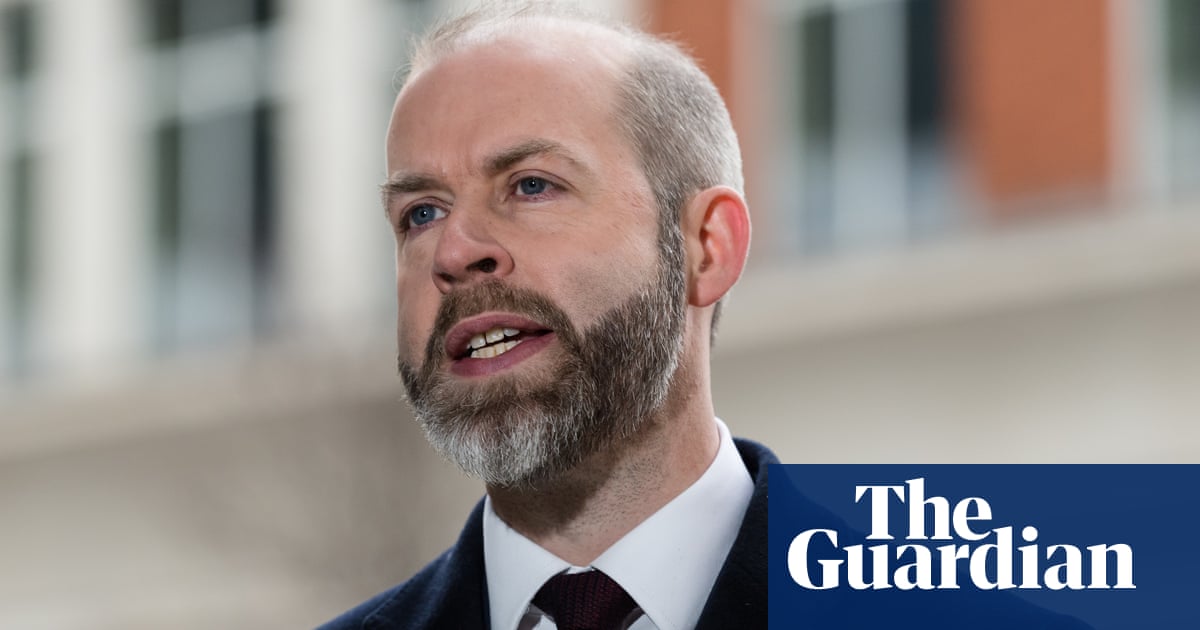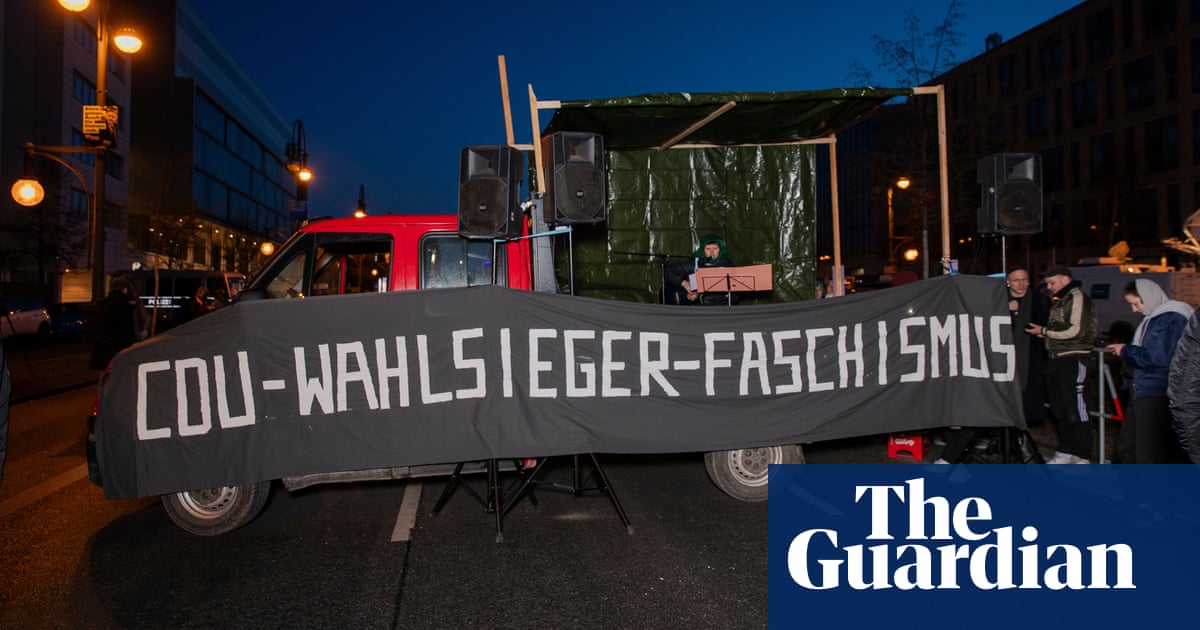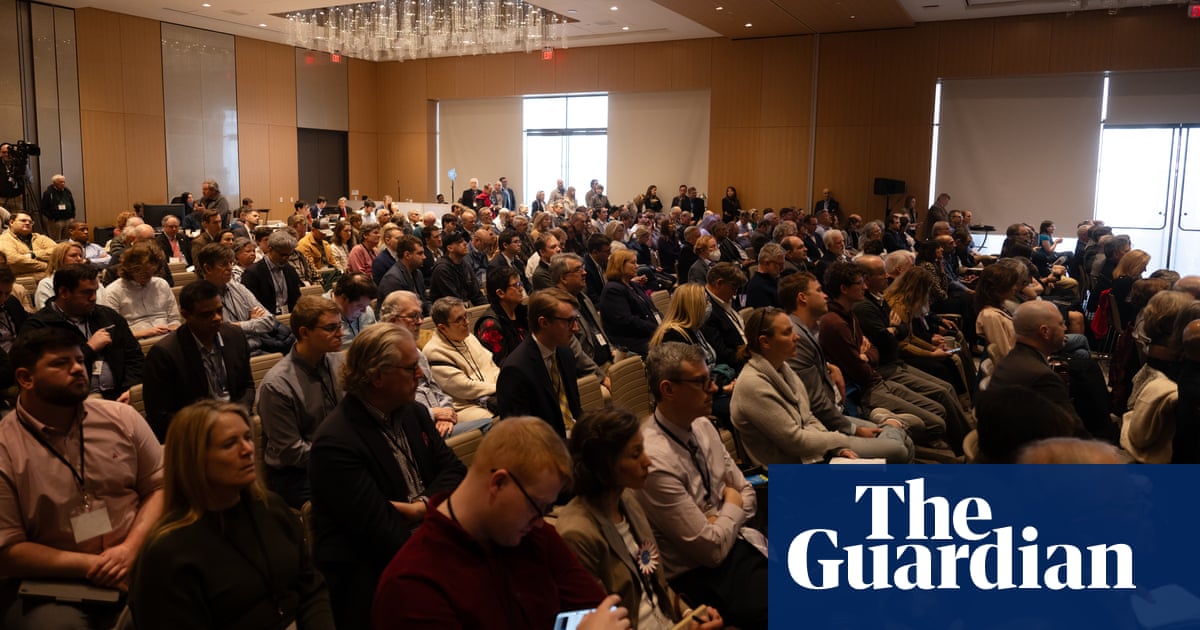Mike Johnston, the mayor of Denver, joined a drumbeat of local leaders in left-leaning cities across the country earlier this month to say he’s willing to protest the incoming Trump administration’s expected mass deportation efforts.
He told local outlet Denverite that Denver police would be “stationed at the county line” to keep federal authorities out. “It’s like the Tiananmen Square moment with the rose and the gun, right?” he said. He then walked back the comments about using local police, but still said he would protest deportations – even being willing to go to jail for it.
“I’m not afraid of that and I’m also not seeking that,” he told 9News.
Donald Trump’s “border czar”, Tom Homan, said that’s one area where he and Johnston agree. “He’s willing to go to jail, I’m willing to put him in jail,” Homan told Fox on Tuesday.
The back and forth is indicative of what’s to come, as liberal cities and states plan to push back against Trump’s mass deportation plans. The resistance will likely come with a backlash from Trump, who could withhold federal funds or, as Homan threatened, arrest local leaders who stand in his way. Trump’s team is reportedly figuring out ways the president could unilaterally remove federal resources from Democratic cities that don’t go along with deportation plans.
The stature is not new for some cities. Some have had so-called “sanctuary city” policies in place since before Trump’s first term, promising not to aid federal immigration and customs enforcement agents as they seek to detain and deport immigrants. Some additionally have programs to provide support to migrants and to manage what data they collect on undocumented populations.
Other cities and states choose to cooperate with agents by providing them information and resources to identify and detain migrants – and some state laws bar cities from adopting sanctuary policies. Texas, for instance, has offered up state land to use for deportation facilities.
Sanctuary policies can slow deportations and, local officials hope, deter immigration agents from targeting their communities because operations there would encounter organized resistance and cost more money to carry out.
“They work – that’s why the Trump administration hates them,” said Naureen Shah, the deputy director of government affairs for the American Civil Liberties Union. “The Biden administration doesn’t like those policies either.”
For his second term, Trump and his appointees have threatened a more forceful and broad deportation plan, though they have not offered details on what it will look like. Trump has said he will activate the military to carry out deportations, and there are likely to be flashy raids in Democratic cities that defy him.
ICE has limited resources and has historically preferred to conduct raids in localities where it has local cooperation, though in his first term, Trump still sought to deport people from cities that opposed deportations. Immigration advocates expect a blend of these two strategies – with some showdowns in “sanctuary” places as a show of force.
“Some of the raids will be in the red states where they have a lot of support from state and local law enforcement, because that’s just going to help them reach the numbers that they want to reach,” Shah said. “They’re also going to want to make people feel very afraid and very unsafe in the blue states. They’re going to want to create that sense that there is no safe sanctuary. That’s part of their game. So I don’t think that we should be comfortable in any part of the country.”
What cities are doing
Around the country, mayors and city councils are discussing how they can protect local immigrants from a mass deportation campaign. Cities cannot stop federal authorities from deporting people, but depending on state laws, they can refuse to use local resources or voluntarily provide information to assist in these operations.
In Los Angeles, the city council approved a sanctuary policy earlier this month, with one council member saying the city would be “hardening our defenses” against Trump.
Homan spoke out against the city on Newsmax. “If you don’t wanna help, get the hell outta the way,” he told the rightwing outlet. “If I gotta send twice as many officers to LA because we’re not getting any assistance, then that’s what we’re going to do. We got a mandate. President Trump is serious about this. I’m serious about this. This is gonna happen with or without you.”
Chicago’s Democratic leaders have reignited trainings similar to those communities there went through during Trump’s first term. The trainings are designed to teach people how to spot and respond to immigration enforcement actions.
Carlos Ramirez-Rosa, an alderman on Chicago’s city council, said a local training in mid-November drew nearly 600 people – six times as many as the first training in 2017. The group is also getting started earlier.
“Trump is promising massive deportations on day one, and we’re preparing to defend our communities on day one,” he said.
During Trump’s first term, hundreds of people in Ramirez-Rosa’s ward were ready to stand against Immigration and Customs Enforcement (Ice) using tactics such as bicycle brigades, which ultimately were not needed at that time. Still, being organized can serve as a deterrent to immigration agents, who want the lowest cost and easiest operations possible, he said. “Ultimately, the organized community is the safest community,” Ramirez-Rosa said.
Slowing down deportations means fewer people are deported, though he acknowledges the policies can only go so far. “At the end of the day, nothing can preclude federal immigration agents from coming into your community, pulling people over, knocking on people’s doors. No local law can prohibit the federal government from enforcing immigration law in your community or in your neighborhood.”
He said local officials should make sure policies are ready when Trump takes office, but also preparing the community to organize against deportations and engage in nonviolent civil disobedience. They should also be figuring out what local resources they can use to help migrants through legal clinics or cash assistance, while being mindful about the data they collect and how it could be accessed by federal authorities to find and deport migrants, he said.
“We, as residents, as US citizens, really do need to be thinking about how do we leverage our collective power to defend our immigrant neighbors?” Ramirez-Rosa said. “Do we surround Ice vehicles when they come into our neighborhood? Those are all risks that US citizens in particular should be thinking about taking at this time. But of course, doing that in a way that is strategic and organized, peaceful and really mitigates the harm, particularly towards undocumented people.”
What Trump could do in response
Trump has said he will call a national emergency and then use the military to help carry out a mass deportation campaign. The use of the military, in particular, would bring up a host of legal questions.
“The use of the military on domestic soil should worry all of us, but there’s plenty of harm that the Trump administration could seek to do just by using state and local law enforcement as the force multiplier to mass deportation,” Shah said. “And so sealing off access to the extent possible is going to be significant. It slows them down. It stymies their ability to act at the scale and speed that they want to.”
The Trump administration is likely to try to deny federal funds to cities and states to get them to play ball. One idea floated in Project 2025, the conservative manifesto, called for withholding federal emergency assistance grants as a way to compel cities to detain undocumented immigrants and share sensitive data with the federal government for immigration enforcement purposes.
The second Trump administration is coming into office emboldened by a strong electoral college win and a US supreme court ruling that granted a president immunity from criminal charges for actions taken in his official capacity.
But the Trump administration will still need Congress’s help to expand their authority. A key test will be whether Congress agrees to take away funding from cities that don’t want to participate in deportation efforts, Shah said.
“We’re going to be firing on all cylinders, and we’ll answer their blitz of policies with our own blitz.”

 2 months ago
44
2 months ago
44













































